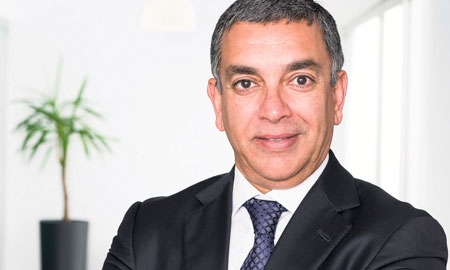How did Banco Único come about and what makes it stand out from other banks?
Looking at the bankarisation level of the country, the numbers are shocking: less than 20 per cent of the adult population is bankarised, less than 8 per cent uses credit and less than 5 per cent uses some kind of insurance product.
Essentially,
Banco Único results from examining the market and getting inspired by it. When we look at our clients, we put ourselves in their shoes and try to find out what drives them. Contrary to the majority of banks, which design products and services to sell in competition with other banks, Banco Único has all the products other banks have, yet it doesn’t aim to differentiate itself with those products, but rather by the relation developed with each client.
It is because of that we say Banco Único, more than being a transactional bank, is a relational bank. We customise our services by client; we are the tailors of the financial system. This means we do not sell products and services, but rather solutions, because we seek to understand the client’s world, what his or her problems are, what he or she offers to the market, etc., and build the best solution with the client.
Why should an investor trust the Mozambican financial system and national profitability?
Mozambique has one of the most modern financial systems in the world. It is ready to serve foreign investors in the same way they are used to being served in their local economies.
One of the fundamental elements for a balanced evolution of the economy is the equilibrium of the currency – the metical – because one of investors’ major worries is how our currency will evolve. If the investor invests in foreign currency, he/she receives the profits in local currency; but if the metical is depreciated when converting it to the currency of origin, the investor will come out worse off. The Central Bank has been conducting a very responsible policy with regards to the stability of the currency. Although in recent years we have seen a depreciation of the metical in relation to the dollar, there clearly is greater currency stability.
The financial system of banks, in general, is one of the principal entrance points for investors in any economy. At Banco Único, we welcome foreign guests and guide them through the national procedures to be met, so that the repatriation of funds invested is as smooth as their entry in the investment phase.
The bank works as a catalyst, consultant, advisor and gateway to invest in our country. We know the market deeply, the national economic agents, and the demands and skills needed by the market. We can convey the strong and weak points of the system to investors and we are in a position to support investments with greater peace of mind.
What will your strategy in the future be to attract more partnerships and shareholders?
In spite of being the newest bank, Banco Único has the most management experience in the country, with more than 15 years in the sector. We have a very significant capacity to build international relations with several countries, banks and international agents. We know what the critical elements are, what moves an international investor when he or she is advancing towards an investment operation in a given economy. We know what the elements of success are, and the assumptions and national conditions; in fact, we are in a great position to develop partnerships and promote them.
We have relations with several banks at the national level. We partner in many ways: cooperating with clients of other banks that do not have representation in Mozambique; striking partnerships at the know-how level, in the corresponding banking areas; and we work together at the shareholder level, like with NedBank. This is an area in which we perform very well, because we have vast experience in relation building in the international market.
The bank’s three pillars of development are infrastructure, technology and human capital. You will never hear us say that something does not work because of a weakness in our human capital. Our responsibility goes far beyond what comes to us from the education market. It is up to us, as companies, to attract human capital, train people and place them at the desired levels.
As a proud local entrepreneurial middle class emerges in Mozambique, how has Banco Único added value to its consolidation?
We have created a bank that contributes towards the development of the national economy. That’s our biggest contribution. Having a well-structured national economy, national production, and equitable distribution of national wealth, with the people (who are welcoming and know how to live along various nationalities, languages and peoples) being the first beneficiaries of this process of national wealth, we will have an exemplary country.
The role reserved for an institution like ours is to promote the development of the economy, to promote financial products that could create jobs, promote the emergence of SMEs and everything that has to do with the generation of jobs and wealth in the country.

0 COMMENTS